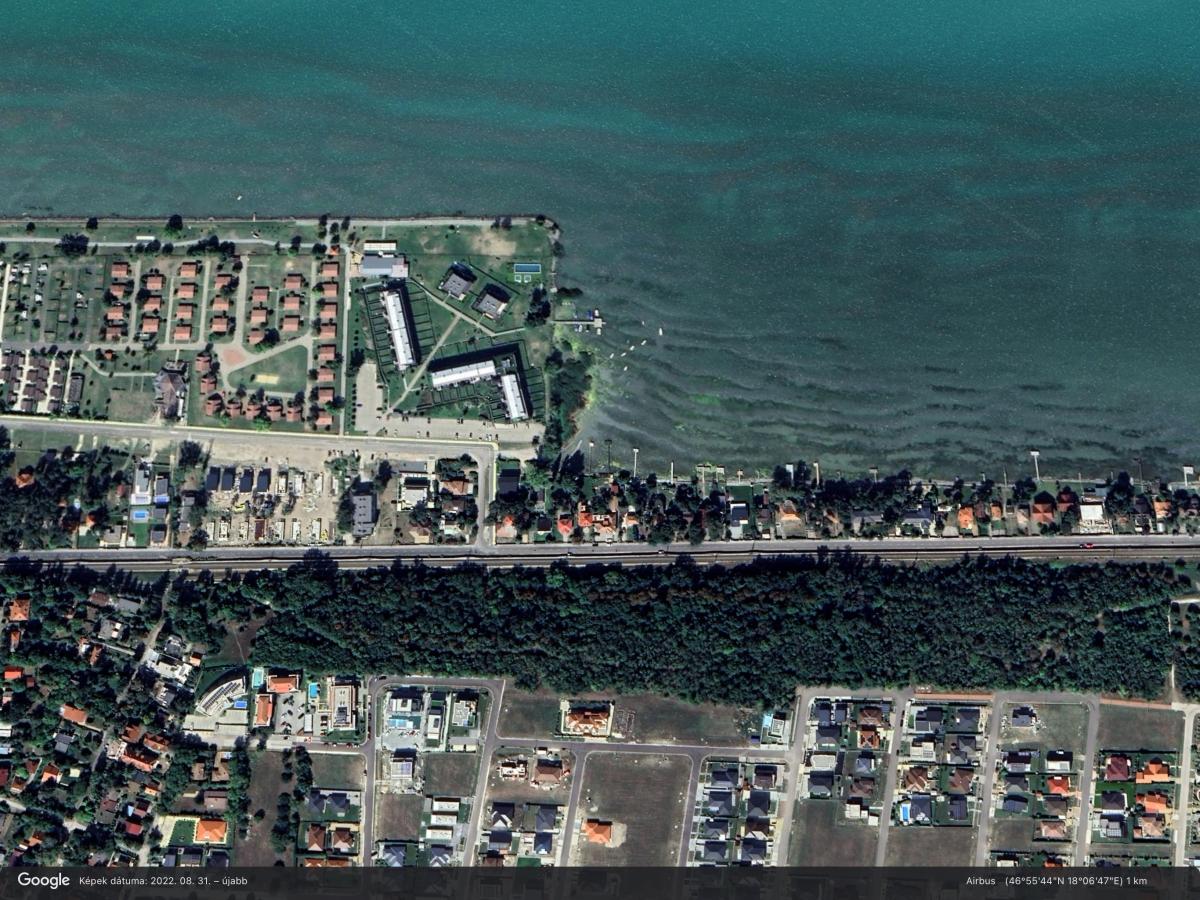
The "Transitional spaces - waterfront concepts," the final event of the Balatorium program in autumn will offer a unique format: a train journey along Lake Balaton's southern coastal railway line, allowing participants to explore the history and roles of waterfront areas from diverse disciplinary viewpoints.
Such areas are called transitional spaces in architecture, ecotones or edges in ecology, and buffer zones in urbanism. The functions of these spaces are very diversified, as they provide a smooth connection and transition between habitats of different types and functions. This requires a specific biotope and microclimate, and the human land-use patterns should be adapted to this.
In the case of Lake Balaton, this zone is located in the heavily built-up shoreline belt, rapidly reducing the area of the lake's transitional zone, which is less and less able to fulfill its functions. This is both a cause and a consequence of changing land use and cultural habits. Therefore, Lake Balaton may soon lose the features that have made it one of the region's most diverse habitats and a major tourist destination.
The speakers and the topics:
Dr. Mateja Kurir, a philosopher and architectural theorist, will discuss the various connotations of transition and delve into transitional space as an architectural phenomenon, examining its distinctive characteristics. Furthermore, she will analyze the distinctive qualities of waterfront zones as transitional spaces, addressing boundary issues and highlighting the unique attributes of resort areas.
Domonkos Wettstein, PhD, an architect, concentrates his research on the planning history of the Lake Balaton region. In his landscape commentary, he assesses the transformations in the southern shore of Lake Balaton's built environment over the past century in the context of architectural traditions and challenges. He examines the unique characteristics of settlement structures in connection with the individual affected settlements, the significance of planning boundaries, and their recent erosion.
Vera Schleicher, PhD, an ethnographer and museologist, also explores the evolving geographical spaces of Lake Balaton in her landscape commentary, considering cultural and social interactions and the challenges posed by tourism for both indigenous residents and vacationers. Her work aims to address where these cultural interactions occur and whether transience can be comprehended as a temporal and social process.
Dr. Anna Varga, an ethnobiologist, will delve into the traditional utilization of the coastal zone landscape and the consequent changes it has undergone. She will analyze the impacts of these changes on Lake Balaton and its natural habitats farther from the shoreline.
Dr. András Zlinszky, a limnologist and spatial information scientist, concentrates on modeling the lake's ecosystems and human activities. In his presentation, he will explore the zoning of riparian habitats and the ecological roles of specific zones. Dr. Zlinszky will guide us through a cross-section of the riparian zone, providing insights into the key groups of organisms along the waterfront and the ecological processes they support.
Agenda:
10:00 - Budapest, Déli railway station, meeting, boarding
10:35 - Budapest, Déli railway station, train departure
11:00 - Introductory presentation by Mateja Kurir
11:20 - Székesfehérvár
11:40 - Landscape commentary by Vera Schleicher and Domonkos Wettstein
11:55 - Siófok
12:45 - 15:10 - Field walk and discussion in the waterfront zone of Balatonfenyves led by András Zlinszky and Anna Varga
15:16 - Balatonfenyves railway station, return to the train
15:30 - Workshop discussions
16:01 - Siófok
16:36 - Székesfehérvár
17:21 - Return, Budapest, Déli railway station
USEFUL INFORMATION:
You can also participate in the Balatonfenyves field walk separately by meeting at the Balatonfenyves railway station.
The program is free of charge, and registration is mandatory. However, we welcome travel contributions as donations.
RECOMMENDED TICKET PRICES SOON
The program will be a hybrid event, offering sessions in both English and Hungarian languages. Translation support will be available upon request for participants in small groups.
The event will take place in a designated train coach.
While snacks and refreshments will be provided for registered participants, you are encouraged to bring additional food and drinks as needed.
Given the terrain, it is recommended to wear comfortable, waterproof footwear and clothing for the event.
Please note that this program is recommended for participants aged 16 and above.
If the weather becomes exceptionally bad, the organizers reserve the right to change the location of the Balatonfenyves field walk.
The BALATORIUM programme is organised and coordinated relying on field expertise by the PAD Foundation on behalf of the Veszprém-Balaton 2023 European Capital of Culture. Other partners. Other partners: Moholy-Nagy University of Art and Design, Balaton Limnological Research Institute, Balaton-Uplands National Park Directorate, Bakony-Balaton Environmental Education Centre Association, University of Pannonia Limnology Research Group, Hungarian University of Fine Arts.

